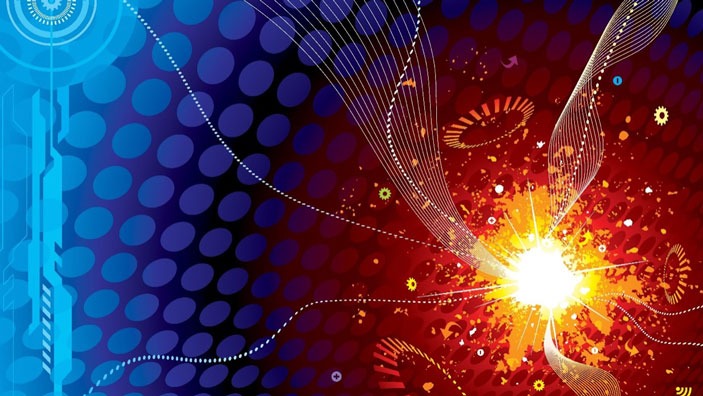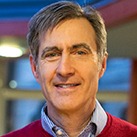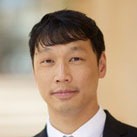Cambridge Risk Research Symposium

27 Jun 2024
09:30 -17:00
Times are shown in local time.
Open to: Specialists and business managers, including threat specialists, academics, policy-makers, practitioners and advisors
Registration fee: Day rate – £50

Cambridge Judge Business School
Trumpington St
Cambridge
CB2 1AG
United Kingdom
Business implications of climate transition, war and emerging trends
The Cambridge Risk Research Symposium is a one-day event run by the Cambridge Centre for Risk Studies, Systemic Risks Hub, that brings together a multidisciplinary panel of business and academic experts on systemic risk and give them the opportunity to present their work around major topics.
The Cambridge Risk Research Symposium is organised to include interdisciplinary sessions, poster presentations and networking events to promote knowledge exchange across sectors.
On the 15th anniversary of the Cambridge Centre for Risk Studies, we bring together a multidisciplinary panel of business and academic experts on systemic risk and give them the opportunity to present their work around three major topics:
- Climate transition
- World at war
- Megatrends.
These topics highlight the research pillars of the Cambridge Systemic Risks Hub and will follow on in further detail from the 15th Cambridge Risk Summit. Please contact the Centre for further information on our Cambridge Risk Research Symposium.

Platform partner

Programme
09:30 – 10:00
Registration coffee and tea
10:00 – 10:10
Opening address
10:10 – 11:00
Session 1: Climate transition
Chair: Fernanda Lammoglia, Research Associate, CCRS
- Kris de Meyer, Director, UCL Climate Action Unit (CAU) & Senior Research Fellow, Department of Earth Sciences at UCL
- Laure de Preux, Assistant Professor of Economics, Imperial College Business School
- Nina Seega, Director, Centre for Sustainable Finance at the University of Cambridge
This session will explore key aspects of transition risk. It will include presentations on behavioural aspects, sustainable finance and climate polices to encourage actions aligned with the net-zero transition.
11:00 – 11:30
Poster session 1 and coffee
11:45 – 12:45
Session 2: World at war
- Jimena Blanco, Senior Director, Chief Analyst at Verisk Maplecroft
- Timothy Less, Geopolitical Analyst, Geopolitical Risk Study Group at the University of Cambridge
- Taha Tariq, Geopolitical Research Lead, Cambridge Centre for Risk Studies at the University of Cambridge
In the last decade, global tensions appear to have increased with Russia’s invasion of Ukraine, the Hammas/Israel conflict and escalation in the Middle East. This session will present multiple geopolitical futures for the next 5-10 years.
12:45 – 13:00
Group photo
13:00 – 13:30
Poster session 2
13:30 – 14:30
Lunch
14:30 – 15:50
Session 3: Megatrends
Chair: Kevin Tang, Researcher, CCRS
- James Fox, Research Director, London Initiative for Safe AI
- Thomas Becker, Vice President Sustainability, Mobility, BMW Group
- Peter Durante, Managing Director, Cogitare Advisors
Multidisciplinary scenarios are bringing together economic modelling, social and political impacts, natural or material science background and behavioural aspects. The consideration of connected mega-trends requires a meta-multi-disciplinary approach where experts from several fields (technology, demographics, physical effects etc) come together to build consistent and connected scenarios. This session will explore some relevant megatrends and will attempt to bring them together under the umbrella of the river catchment metaphor.
15:50 – 16:00
Conclusions
16:00 – 17:00
Poster and drinks at Cambridge Judge Business School’s reception
Speakers
Risk Research Symposium Chairs
Fernanda Lammoglia
Research Associate, Centre for Risk Studies
Fernanda is a Research Associate in systemic risks at the Centre for Risk Studies. She is a Mexican engineer focused on the application of technology for development and social innovation. Previously, Fernanda worked on gene and cellular therapies for several years and then transitioned to consulting in technology innovation, disaster risk management (DRM) and emergency preparedness and response (EP&R). Fernanda is also a passionate traditional fencer and martial artist, looking forward to this new opportunity to work on systemic risks at the Cambridge Centre for Risk Studies.
Trevor Maynard
Vice Chair and Director of Systemic Risk at the Cambridge Centre for Risk Studies
Dr Trevor Maynard is the Director of Systemic Risk at the Cambridge Centre for Risk Studies located at the Judge Business School.
He qualified as an actuary and holds a PhD in Statistics from the LSE and a Masters in Pure Mathematics from the University of Warwick.
His work has involved risk modelling in various guises from Pensions and Life Assurance to general insurance, working for firms such as Lloyd’s of London and Mercer. Whilst at Lloyd’s his team produced risk reports on subjects including Pandemics, Climate Change, Deep tail Marine disasters, Nano Technology, Geopolitics, AI, Robotics and IoT working with many think tanks, universities and specialist risk modelling firms.
Additionally he advises insurtech firms on risk and data science.
Daniel (Danny) Ralph
Academic Director, Centre for Risk Studies
Professor Danny Ralph is a Founder and Academic Director of the Centre for Risk Studies, Professor of Operations Research at the University of Cambridge Judge Business School, and a Fellow of Churchill College. Danny’s research interests include identification and management of systemic risk, risk aversion in investment, economic equilibria models and optimisation methods. Management stress test, via selection and construction of catastrophe scenarios, is one focus of his work in the Centre for Risk Studies. Another is the role and expression of risk management within organisations. Danny engages across scientific and social science academia, a variety of commercial and industrial sectors, and government policy making. He was Editor-in-Chief of Mathematical Programming (Series B) from 2007-2013.
Kevin Tang
Researcher, Centre for Risk Studies
Kevin is a researcher at the Cambridge Centre for Risk Studies. His research looks at climate disaster risk and recovery, systemic economic and climate risk, and global trends, networks, and linkages in the design and analysis of risk taxonomies and scenarios. He has worked in research related to climate financial risk, including input/output analysis of climate-economy modelling, climate scenario modelling and stress testing, carbon accounting, energy systems, and transition and fiscal policy. He has been a researcher at Oxford University’s School of Geography, Department of Economics, and the Said Business School, where he has worked on topics related to international trade, competition, infrastructure, international development, inequality, and long-run growth. He has been a lecturer at Oxford University and the University of Buckingham. He holds a PhD and MSc from Oxford University, and a BA from Northwestern University.
Speakers
Thomas Becker
Vice President Sustainability, Mobility, BMW Group
Since 10/2019 Dr. Thomas Becker holds the position as Vice President Sustainability, Mobility at the BMW Group.
Dr. Thomas Becker was Vice President Government and External Affairs at the BMW Group in Munich from 2007 to September 2019. During his time in the area of Government and External Affairs he supervised the worldwide representation of the BMW Group’s political interests, the company’s approach to integrate political topics into the product as well as business communications and the steering of the sustainability communication of the company.
Dr. Thomas Becker started his career as an expert in the department of environmental policy at the Association of the German Industry (BDI) in Berlin. He later held several leadership positions at the Association of the Automotive Industry (VDA) in Frankfurt. Before his current role with the BMW Group Dr. Becker worked as Deputy Managing Director at VDA, where he was responsible for the association’s co-management.
Dr. Thomas Becker received his PhD degree (Dr. rer. pol.) with Professor Dr. Ekkehard Kappler at the Reinhard-Mohn Foundation Chair for Management, Economics, and Social Evolution at the University of Witten / Herdecke with magna cum laude. He also holds a diploma in economics from the University of Cologne.
Jimena Blanco
Senior Director, Chief Analyst at Verisk Maplecroft
Jimena is Verisk Maplecroft’s Chief Analyst. She frequently provides advice to multinational companies and multilateral institutions on geopolitical and country-specific political risk. Jimena has undertaken numerous field projects, including Human Rights Impact Assessments for clients across the globe.
Jimena participates in diplomatic, academic and business forums, addressing issues of global, regional and country-specific concern. She is an experienced public speaker and is often invited to deliver analysis to some of the world’s largest industry shows and conferences. Jimena also makes regular contributions to the British and foreign media.
Prior to working for Verisk Maplecroft, Jimena edited several publications at Latin News and wrote extensively on Latin America. She was also a contributor to the International Institute for Strategic Studies’ special dossier, The Farc Files: Ecuador, Venezuela and the Secret Archive of ‘Raúl Reyes’.
Jimena studied History and Political Science at Randolph-Macon Woman’s College and obtained a master’s degree in Latin American Studies from the Institute for the Study of the Americas, University of London.
Kris de Meyer
Director, UCL Climate Action Unit (CAU) & Senior Research Fellow, Department of Earth Sciences at UCL
Kris is a neuroscientist, science communicator and science-policy co-production expert; bringing insights from neuroscience and psychology to the domain of climate change.
Kris specialises in how people become entrenched in their beliefs, how this leads to polarisation in society, and how to overcome this. He co-produced Right Between Your Ears – an award-winning documentary exploring how people become entrenched in their views, and co-created The Justice Syndicate, a participatory play about how we disagree.
At the CAU, Kris is responsible for the neuroscientific underpinning of the programme of interventions provided. Kris works closely with clients providing unique expertise on how the human brain responds to climate change.
Laure de Preux
Assistant Professor of Economics, Imperial College Business School
Laure is an Assistant Professor of Economics at Imperial College Business School, affiliated with the Centre for Health Economics & Policy Innovation, CEPR, and the Grantham Institute for Climate Change and the Environment. Her research interests lie in environmental and health economics, focusing on evaluating climate change policies and examining the determinants of health, particularly the effects of climate and pollution on individual behaviour and healthcare utilisation.
She joined Imperial College London in 2013, holding a British Academy Post-Doctoral Fellowship. Before this, she was a Research Officer at the Centre for Economic Performance at the London School of Economics (2008-2013). Laure holds a PhD in Economics from the University of York.
Peter Durante
Managing Director, Cogitare Advisors
He is currently the Managing Director of Cogitare Advisors, providing strategic, investment and operating advice to a range of investors, developers, operating companies, governments and start-ups focused on energy transition and digitalisation. He also serves on various advisory and non-executive boards in energy, and is a guest lecturer on energy futures at the University of Oxford.
Previously, Peter was the Global Head of Technology and Innovation at Macquarie Asset Management, was on the board of Approtium (a low-carbon hydrogen producer in Korea), the Head of Emerging Technology and Market Intelligence at Saudi Aramco Renewables, a Principal Consultant at Irbaris and spent 10 years at Shell in a range of positions including downstream B2B, procurement, oil trading and emissions trading and strategy.
Peter has an Executive MBA from the University of Oxford, an MSc in Finance and Financial Law from SOAS (Univ. of London), an MA in International History from the University of Kent’s Brussels School of International Studies, and a BA in History from Arizona State University.
James Fox
Research Director, London Initiative for Safe AI
James is currently Research Director of the London Initiative for Safe AI (LISA). He has just completed his DPhil (Computer Science, University of Oxford) on technical AI safety, supervised by Tom Everitt (Google DeepMind) and Michael Wooldridge & Alessandro Abate (Oxford). His research has mainly focused on game theory, causality, reinforcement learning, and agent foundations. James also has an MSci in Natural Sciences (Physics) from the University of Cambridge, has worked on various AI governance projects with the Centre for Study of Existential Risk, and has consulted for several AI start-ups.
Timothy Less
Geopolitical Analyst, Geopolitical Risk Study Group at the University of Cambridge
Dr Timothy Less runs the study group in geopolitical risk analysis at the Centre for Geopolitics. He also works as a consultant for the private sector with a specialisation in the politics of central and eastern Europe about which he writes and comments for the media.
Previously, he worked as an analyst, diplomat, and policymaker at the Foreign and Commonwealth Office where he led the Countries at Risk of Instability project and ran the British Embassy Office in Banja Luka and the EU Institutions department. He also taught Eastern European Politics at the University of Kent.
Tim holds an MA in Eastern European Studies from the School of Slavonic and East European Studies, an MSt in International Relations, and a PhD in modern history from the University of Cambridge. His recent publications include the ‘City Risk Index 2022’ (co-author, Cambridge Centre for Risk Studies, January 2023); ‘The New Warsaw Pact’ (Engelsberg Ideas, May 2023); and ‘What If? Ten Geopolitical Risks to Keep You Awake at Night’ (GIRO conference paper, November 2023).
Nina Seega
Director, Centre for Sustainable Finance
Dr Nina Seega is the Director of the Centre for Sustainable Finance at the Cambridge Institute for Sustainability Leadership (CISL). The Centre incorporates CISL’s finance industry groups to provide the insight and cooperation needed to advance policy and market practices including; the Banking Environment Initiative (created in 2010 by CEOs of some of the world’s largest banks) ClimateWise (set up in 2007 for global insurance), and the Investment Leaders Group (leading investment managers and asset owners with over $9 trillion under management). Nina has worked with De Nederlandsche Bank (DNB) on the financial impact of disruptive energy transition, collaborated with the South African National Treasury and Banco de Mexico on embedding environmental scenarios into financial risk frameworks, and was the knowledge partner for the G20 Green Finance Study Group in 2016 and 2017. Previously, Nina was the Head of the London Traded Products Desk for Dresdner Kleinwort. In addition to her role at University of Cambridge Institute for Sustainability Leadership, Nina is a member of the Sustainable Finance Advisory Panel at the Monetary Authority of Singapore, Strategic Advisory Board on Sustainable Finance at the British Standards Institute, the Sustainable Finance Scientific Council at S&P Ratings, and the Board of Directors at the Global Research Alliance for Sustainable Finance.
Taha Tariq
Advisor, Centre for Risk Studies
Geopolitics
Taha Tariq was the Research Lead for Geopolitical Risk at the Cambridge Centre for Risk Studies from 2022 to 2025. He developed models, taxonomies, and reports on both systemic and non-systemic geopolitical risk variables, completing major projects for Lloyd’s of London, AXA XL and Pool Re, amongst others. Taha has worked on interstate wargaming, terrorist scenarios, political conflict forecasting and public policy appraisals.
He has also comprehensively researched on other tangential risks such as cyberattacks, economic recessions, epidemics and climate disasters. Taha has given consultations to the UK Department for Business, Energy & Industrial Strategy, Foreign and Commonwealth Development Office, the Ministry of Defence and HM Treasury. He received his MSc in International Relations with a Distinction from the London School of Economics and Political Science (LSE).














